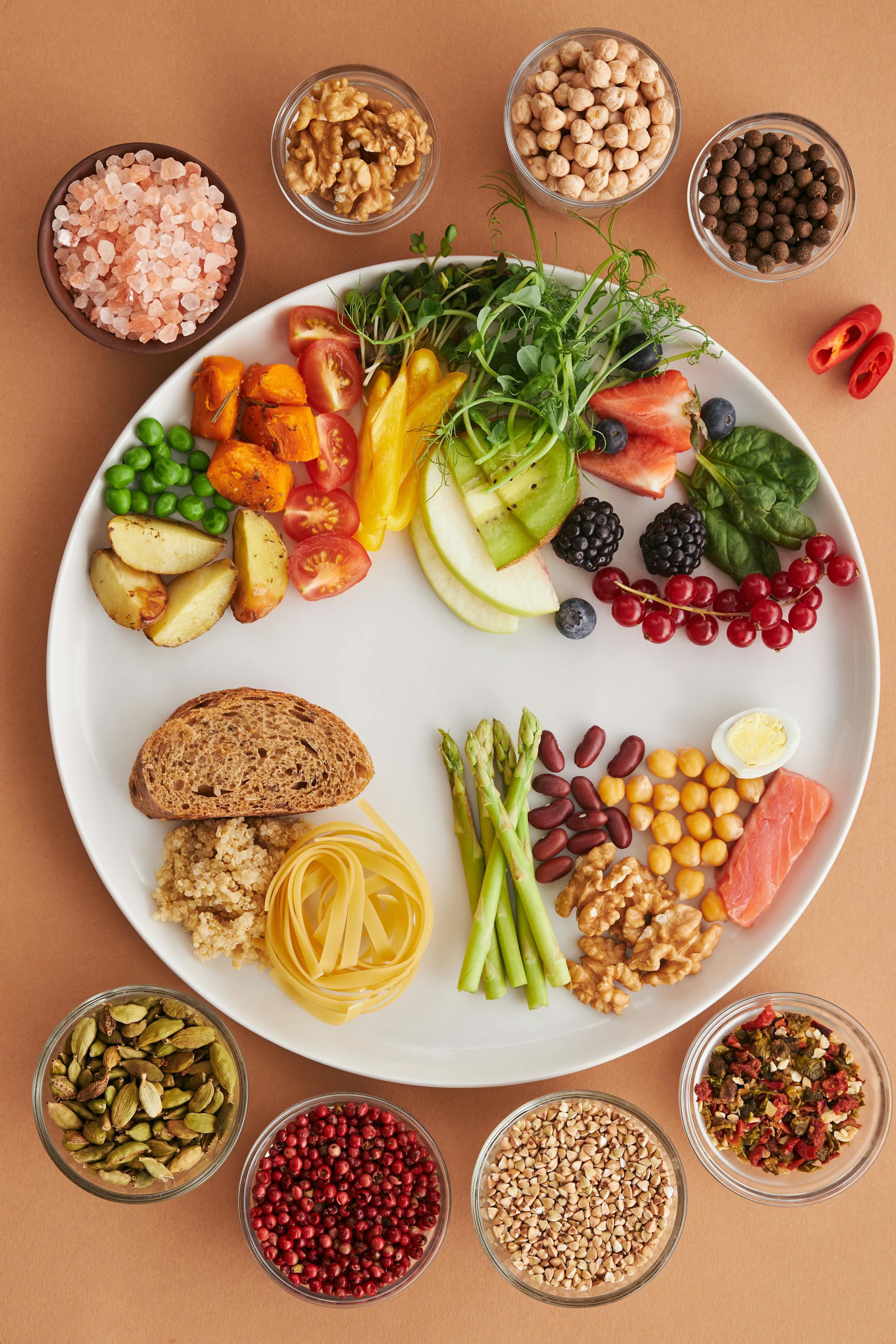Website designed with the B12 website builder. Create your own website today.
Start for free
Did you know that what you eat can affect more than just your body? 🍎 Your brain and mental health are deeply connected to the nutrients you consume. It turns out that nutrition plays a crucial role in maintaining emotional well-being and cognitive function. Let’s explore this vital relationship and how you can use food to support your mental wellness.
How Nutrition Affects Mental Health
Your brain is an energy-hungry organ, using up about 20% of the calories you consume. To function properly, it requires a balanced intake of nutrients. When your diet lacks key vitamins and minerals, your mental health can suffer, leading to symptoms like fatigue, anxiety, and even depression.
Certain nutrients directly influence the brain’s ability to produce mood-regulating chemicals like serotonin and dopamine. Without these essential nutrients, you may feel irritable, anxious, or low on energy.
Key Nutrients for Mental Wellness
Here are some of the most important nutrients for supporting a healthy mind:
1. Omega-3 Fatty Acids
• Why It’s Important: Omega-3s, found in fatty fish like salmon and in flaxseeds, are crucial for brain function and reducing inflammation. Studies have linked them to lower rates of depression and anxiety.
• Foods to Eat: Salmon, mackerel, chia seeds, walnuts
2. Complex Carbohydrates
• Why It’s Important: Carbs help the body produce serotonin, a neurotransmitter that promotes feelings of well-being. Choosing whole grains stabilizes blood sugar levels, preventing mood swings.
• Foods to Eat: Whole grains, oats, quinoa, sweet potatoes
3. B Vitamins (Especially B6, B9, and B12)
• Why It’s Important: B vitamins support brain health by promoting the production of neurotransmitters. Deficiencies can lead to fatigue and depression.
• Foods to Eat: Leafy greens, eggs, fortified cereals, legumes
4. Magnesium
• Why It’s Important: Magnesium helps regulate stress and promotes relaxation. Low levels have been linked to anxiety and insomnia.
• Foods to Eat: Almonds, spinach, avocado, dark chocolate
5. Vitamin D
• Why It’s Important: Often called the “sunshine vitamin,” vitamin D plays a role in mood regulation. A deficiency can increase the risk of depression.
• Foods to Eat: Fortified dairy products, mushrooms, fatty fish (and, of course, sunlight exposure!)
6. Probiotics
• Why It’s Important: Your gut and brain are closely connected through the gut-brain axis. Healthy gut bacteria influence your mood and cognitive function.
• Foods to Eat: Yogurt, kefir, sauerkraut, kombucha
How Poor Nutrition Impacts Mental Health
Diet patterns high in sugar, processed foods, and unhealthy fats can increase inflammation in the body and brain. This can worsen symptoms of depression and anxiety. Skipping meals or consuming too much caffeine may also contribute to irritability, poor focus, and sleep disturbances.
Tips for Supporting Mental Wellness Through Nutrition
Here are some practical ways to improve your diet for better mental health:
1. Eat Balanced Meals: Include a mix of protein, healthy fats, and complex carbs in every meal to maintain stable energy levels and mood.
2. Stay Hydrated: Dehydration can lead to fatigue and brain fog, so drink plenty of water throughout the day.
3. Limit Processed Foods: Try to reduce your intake of refined sugars and highly processed snacks.
4. Focus on Whole Foods: Prioritize fresh fruits, vegetables, whole grains, and lean proteins.
5. Consider Supplements: If you’re struggling to get enough nutrients through diet alone, consult with a healthcare provider about supplements.
The Science Behind the Gut-Brain Connection
You may have heard the phrase “trust your gut.” Well, there’s scientific truth behind it! The gut contains millions of neurons and produces many of the same neurotransmitters as the brain, including serotonin. A healthy gut microbiome supports mental well-being, while an imbalance in gut bacteria can contribute to anxiety and depression.
Final Thoughts
Nutrition is a powerful tool for maintaining mental health and wellness. While food alone won’t solve every mental health challenge, it plays a key role in supporting a stable mood, sharp focus, and overall emotional resilience.
Making small changes to your diet today can lead to long-term improvements in how you feel tomorrow. So why not start with a nutrient-packed meal and take one more step toward better mental health? 🌿